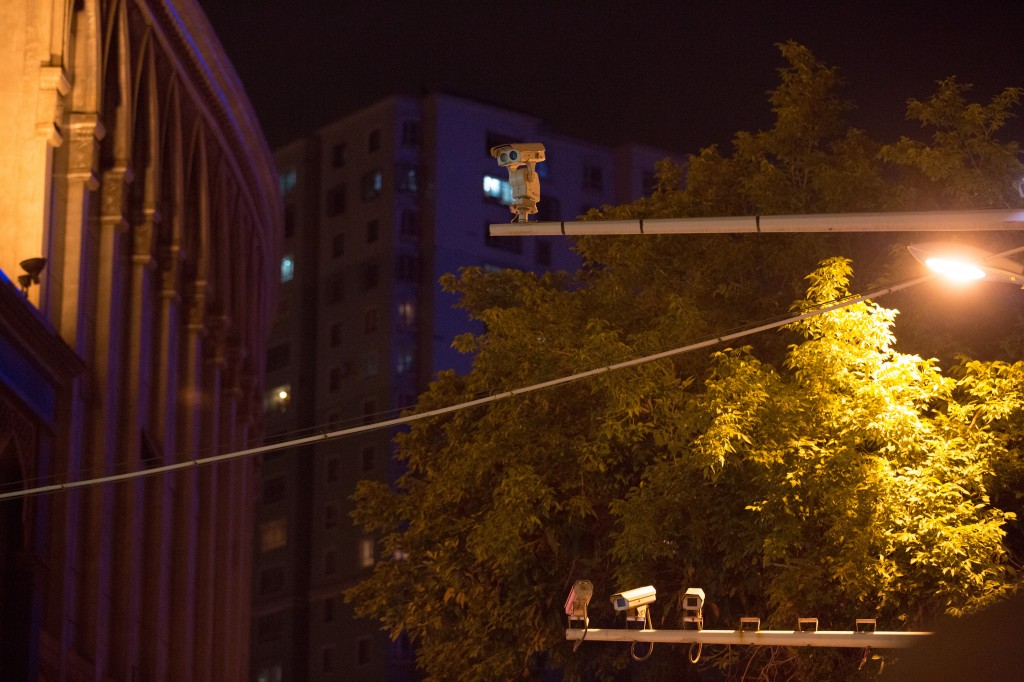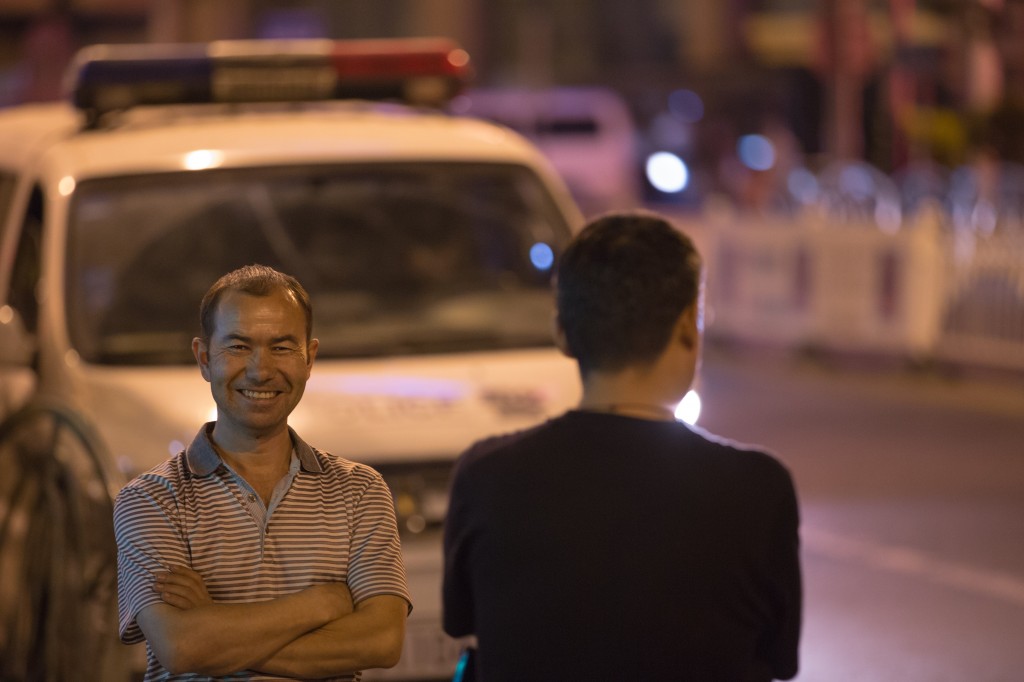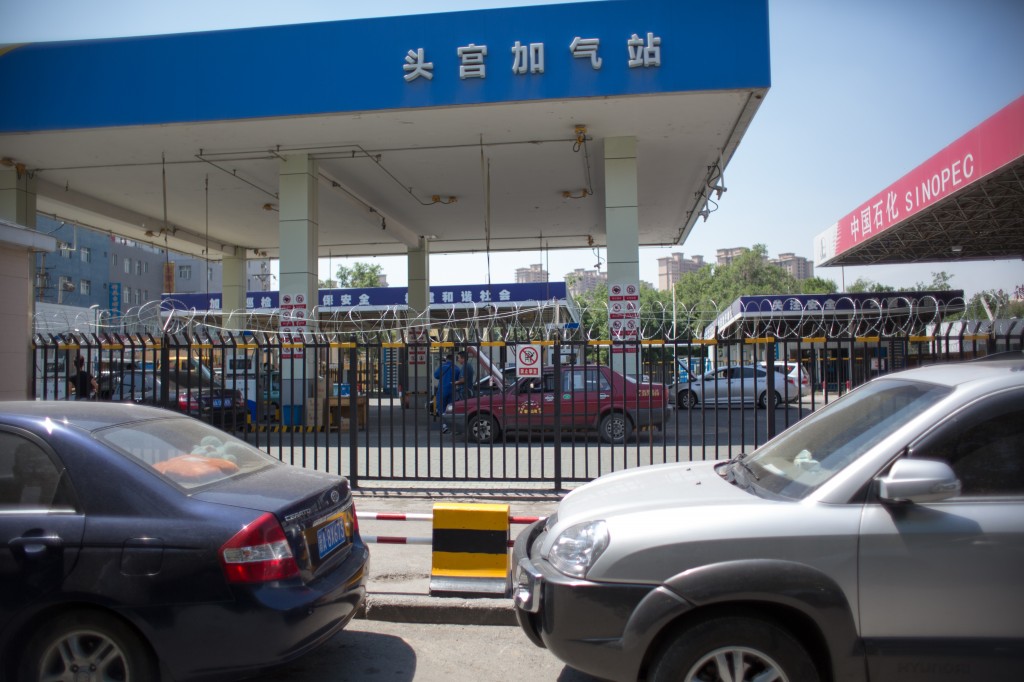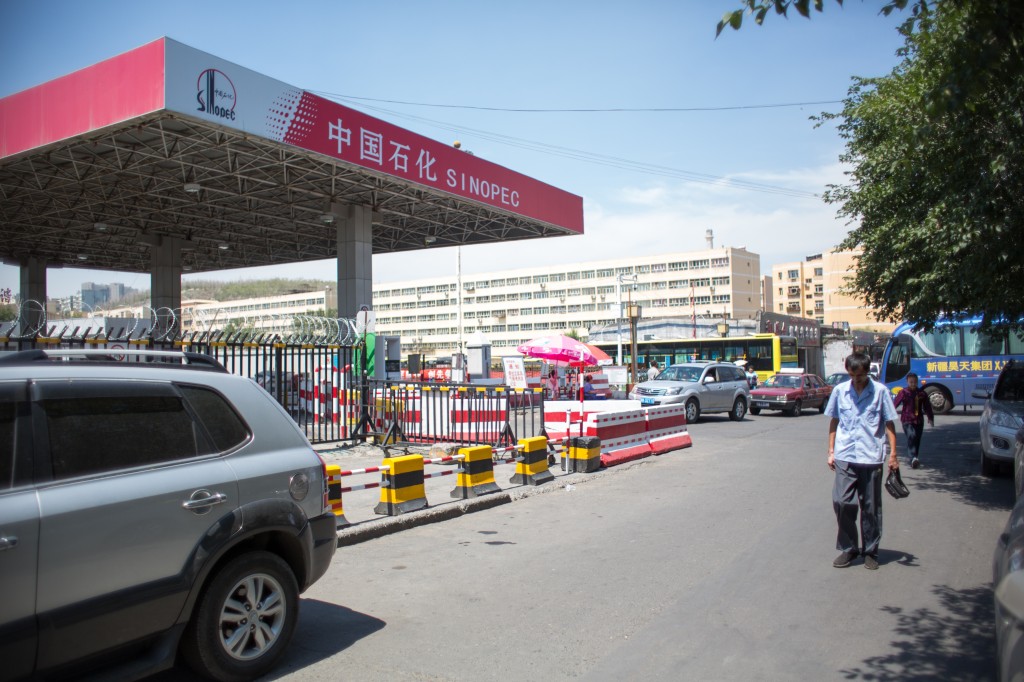Before reading over this post, make sure you check out the previous post, which briefly introduced the situation in Xinjiang.
I have a policy. If I am traveling somewhere dangerous, I do not explain the danger to my mother. Mothers worry too much. I would recommend this policy to all of my readers.
We were entering Xinjiang, a province in the far west of China with an on-going, low-level insurgency. Signs of the insurgency were apparent as soon as we entered Xinjiang.
Our first morning, after the Long Ride, I awoke to get breakfast. Along the main street, every few hundred yards there would be a unit of paramilitary guards, three men with shields and truncheons and two men with high-powered automatic rifles that resembled M-16’s. The guards were not guarding anything particular. They were only stationed there as a show of force, bodies and guns along that main street. The guards were only separated from pedestrians by a thin strip of tape wrapped around four traffic cones. The guards stood silently and looked on while I passed.
In a lively alleyway, several mom-and-pop restaurants were open, steam pouring out of their kitchen windows. The entrance to this alleyway was blocked off by two-foot high concrete barriers. The barriers had been installed to stop suicide bombers from driving cars into crowded areas, something that had happened a few months before.
At the end of this market alley was another guard contingent, three shields, two rifles. Unlike the ones along the main street, this group appeared to be guarding something specific. The five men stood alone behind another concrete barrier beside a gate, distinctly divided off from pedestrians. The building they guarded was three stories tall and surrounded by a nine-foot tall barb-wire fence.
From the opposite side of the street, I peaked into the gate, making sure not to get too close or draw the attention of the guards. What could they be guarding, I wondered. A military installation? Some sort of high-level government office?
Through the gate, I heard the shouts of children; they were playing on a seesaw. On the side of the building, I was able to read the name: Bowangtetouli Elementary School. I was shocked. What did it say about the state of this town that the government had paramilitary officers guarding elementary schools?
On the way back from breakfast, I passed a gas station. The gas station was surrounded by more metal fencing and barb wire. Outside of one entrance, a guard stood behind concrete barriers. Access into the station was limited to a handful of cards, the guard determining when you went in. If you looked suspicious, the guard could search your car. Only the driver was allowed into the station; all passengers had to get out and stand under a tent while the car was filled up inside the station. All the gas stations in Urumqi operated like this. In the morning rush hour, I counted thirty cars waiting to enter the gas station.
Urumqi operated under a constant pall of war-footing, with police cars and urban pacification vehicles squawking along the street at all hours of the night. Unlike when I was in Tiananmen Square on June 4th, this state of constant vigilance felt normal to the residents. Old men ambling to the doctor, mothers walking their children to school, they all seemed inured to the heavy police presence as just the way things are.



